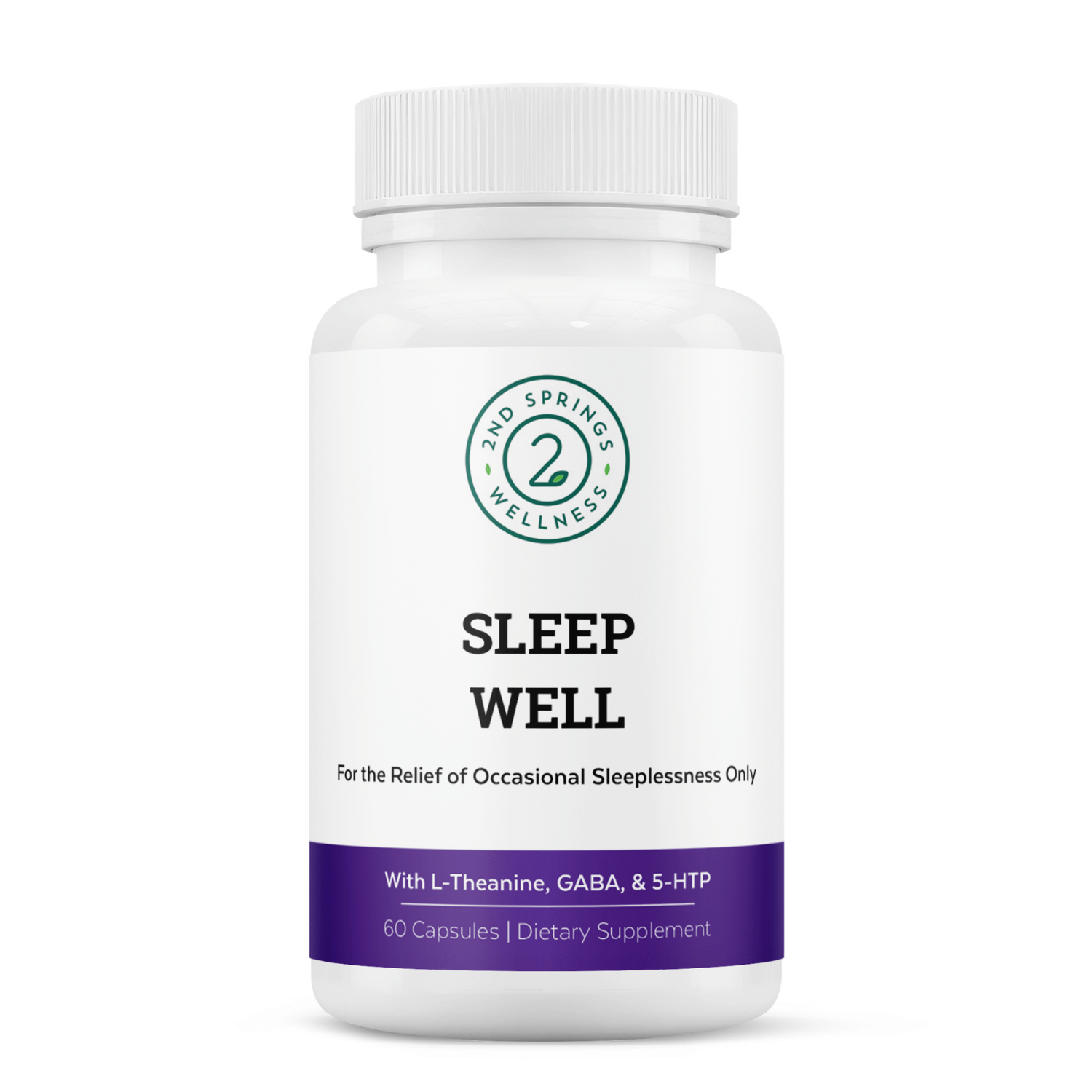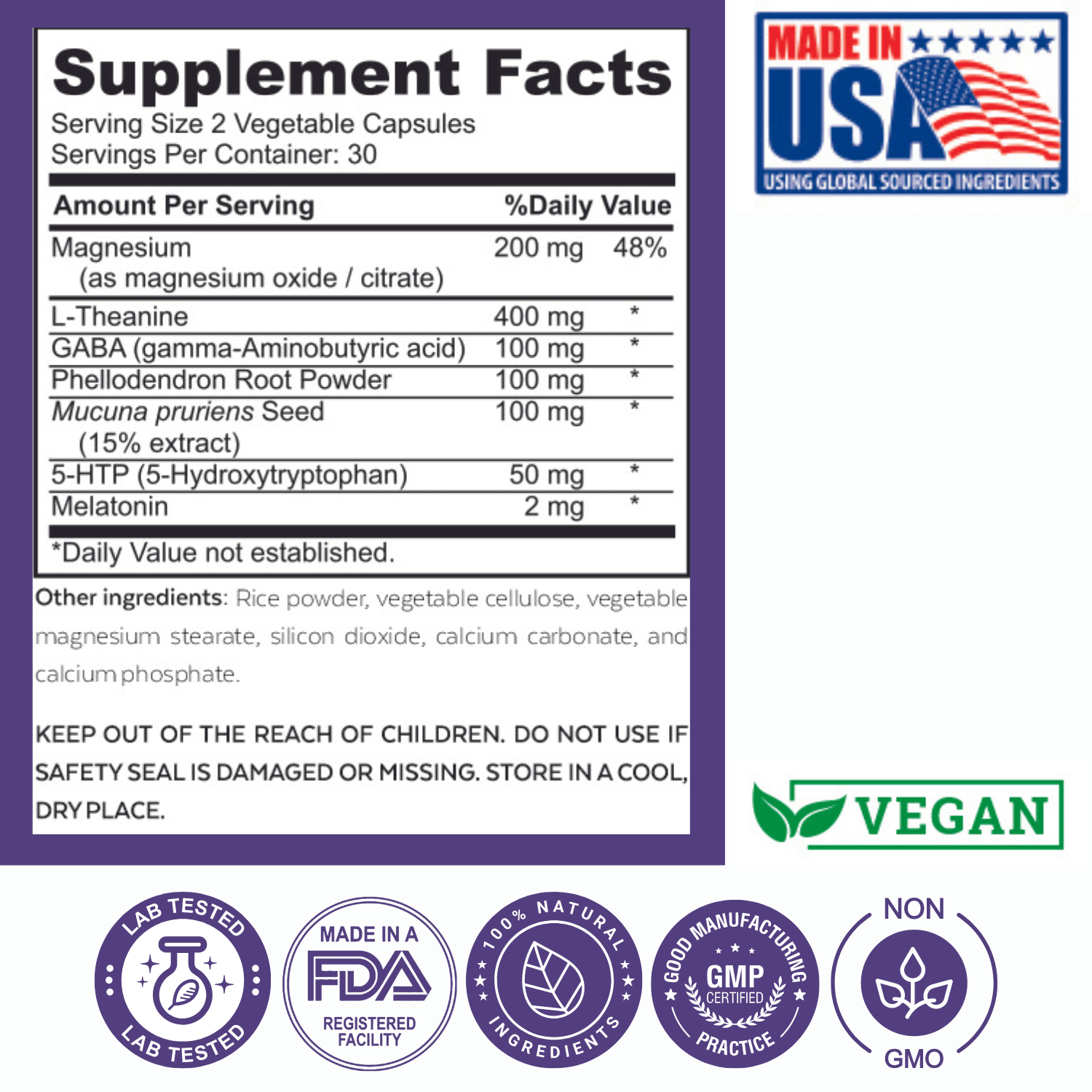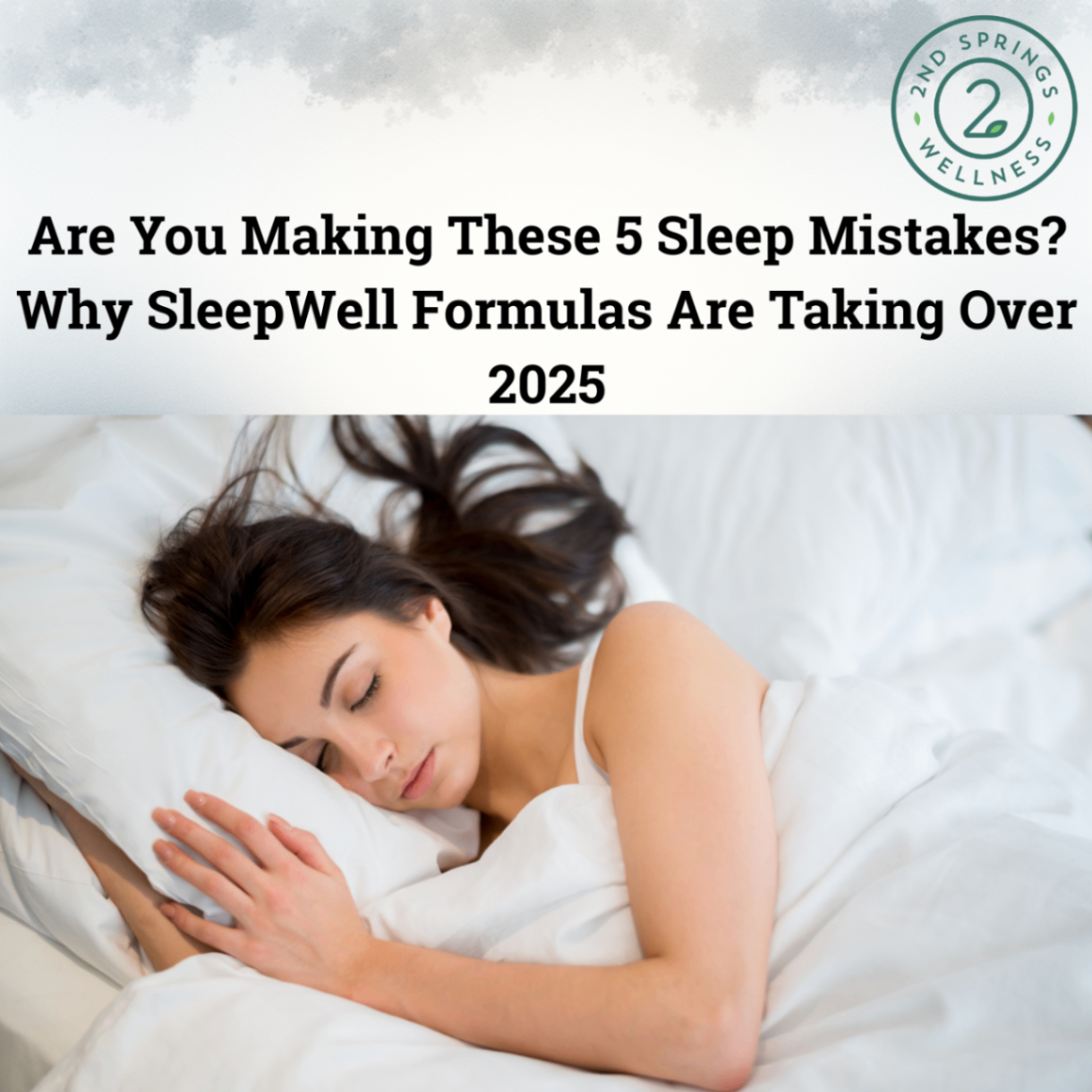
Transform your nights and reclaim your energy: discover the science-backed sleep support that's helping thousands finally get the rest they deserve.
In today's always-on world, quality sleep has become more elusive than ever. Despite spending 8 hours in bed, you're waking up feeling drained, foggy, and far from refreshed. If this sounds familiar, you're not alone: and you're probably making at least one of these five critical sleep mistakes that are sabotaging your rest without you even realizing it.
The good news? These mistakes are completely fixable, and understanding them is the first step toward transforming your sleep quality. Let's dive into what's really keeping you awake and why more people are turning to targeted sleep formulas to bridge the gap between tossing and turning and truly restorative rest.
Mistake #1: Your Screen is Stealing Your Sleep
Here's a wake-up call that might surprise you: 72% of people use their phones in the bedroom, and that number jumps to 86% among those aged 18-24. Beyond smartphones, 24% use laptops in bed and 39% watch TV before sleep. If you're part of these statistics, you're unknowingly sabotaging your body's natural sleep preparation process.
The science is clear: blue light from screens suppresses melatonin production, the hormone that signals to your brain that it's time to wind down. But it's not just the light that's the problem. Engaging with devices by playing games, scrolling social media, or responding to emails stimulates your mind when it should be relaxing. Your brain needs a transition period to shift from the day's activities into sleep mode, and screens prevent this crucial wind-down process.
Mistake #2: Your Sleep Schedule is All Over the Map
Going to bed at different times each night is like constantly changing time zones: it confuses your internal clock and makes falling asleep significantly harder. Your circadian rhythm thrives on consistency, and when you go to bed at 10 PM one night and midnight the next, you're essentially giving your body jet lag every single day.
Research shows that going to bed after 12:30 AM and sleeping less than 6 hours are particularly harmful patterns. Your body's natural sleep-wake cycle depends on predictable timing to function optimally. When this timing is erratic, even if you eventually fall asleep, the quality of that sleep suffers dramatically.
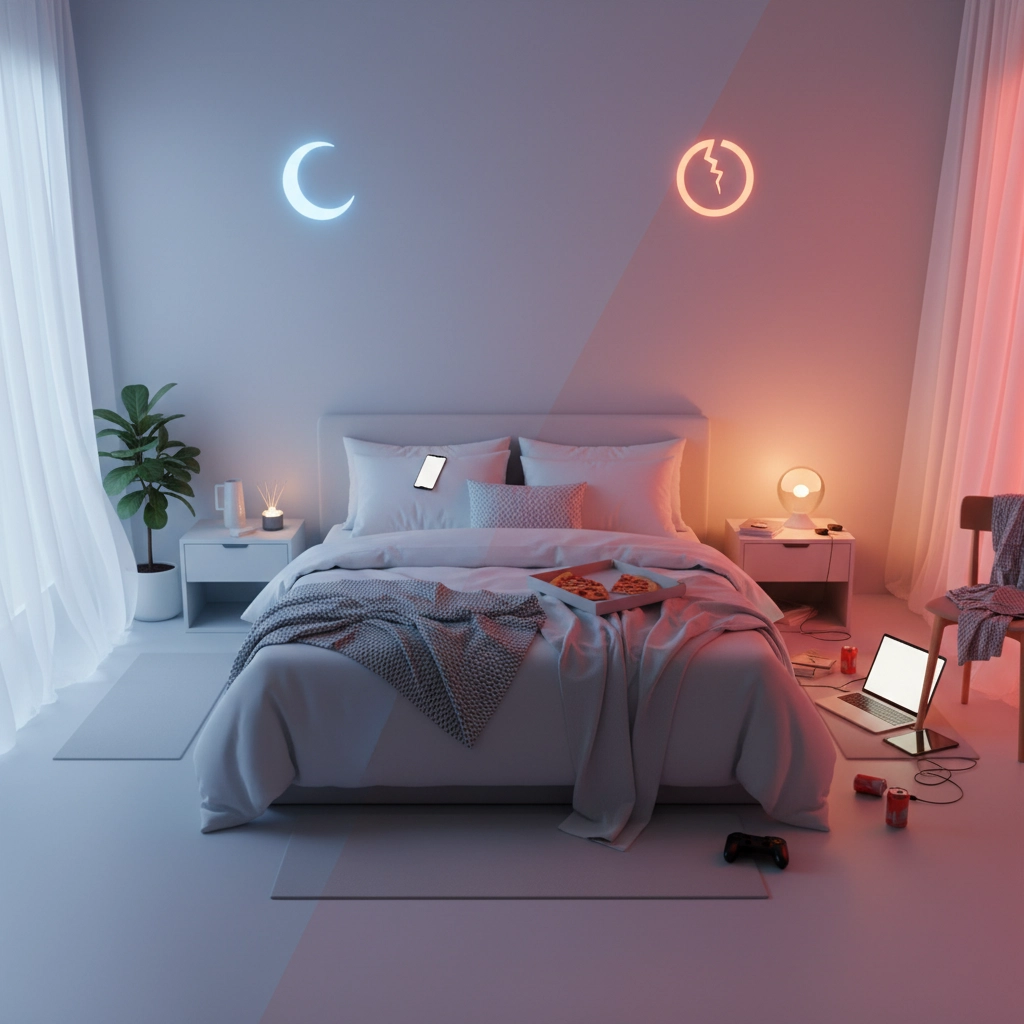
Mistake #3: That "Nightcap" is Backfiring
Many people reach for alcohol as a way to unwind and fall asleep faster, but this strategy is actually working against you. While a drink or two may initially make you feel drowsy, alcohol significantly reduces sleep quality, particularly in the second half of the night when your most restorative sleep phases occur.
Alcohol disrupts your natural sleep cycles, increases the likelihood of interrupted sleep, and can worsen snoring and sleep apnea. What feels like a solution is actually fragmenting your sleep and preventing you from reaching the deep, rejuvenating stages your body needs to repair and restore itself.
Mistake #4: Your Bedroom Environment is Working Against You
Your sleep environment plays a massive role in sleep quality, yet most people overlook two critical factors: temperature and light. Most people sleep best in rooms around 65 to 68 degrees Fahrenheit because your body temperature naturally drops during sleep. When your bedroom is too warm, it can cause unwanted awakenings and make it difficult to reach deeper sleep stages.
Even low levels of light can increase the risk of awakenings and disrupt your circadian rhythm. Your brain is incredibly sensitive to light exposure, and even small amounts can signal that it's time to be awake rather than asleep. Blackout curtains, eye masks, or simply eliminating electronic displays can make a significant difference in sleep quality.
Mistake #5: Your Evening Workout is Too Energizing
Exercise is fantastic for overall health and can improve sleep quality: but timing matters. Intense workouts within 3 hours of bedtime raise your heart rate and body temperature, making it difficult for your body to transition into sleep mode. Your core body temperature needs to drop for optimal sleep onset, and vigorous exercise works against this natural process.
If you prefer evening workouts, opt for light stretching, gentle yoga, or other calming activities instead. These can actually help prepare your body for sleep by promoting relaxation without the energizing effects of high-intensity exercise.
Why Sleep Formulas Are Having a Moment in 2025
As awareness of these sleep mistakes has grown, more people are recognizing that willpower alone isn't always enough to overcome modern sleep challenges. This is where targeted sleep support formulas come in: they're designed to work with your body's natural processes to help bridge the gap between poor sleep habits and quality rest.
The most effective sleep formulas combine multiple approaches: supporting natural melatonin production, promoting relaxation through amino acids like L-Theanine, and including calming botanicals that have been used for centuries. Rather than simply masking sleep problems, these formulas address multiple pathways that contribute to healthy sleep.
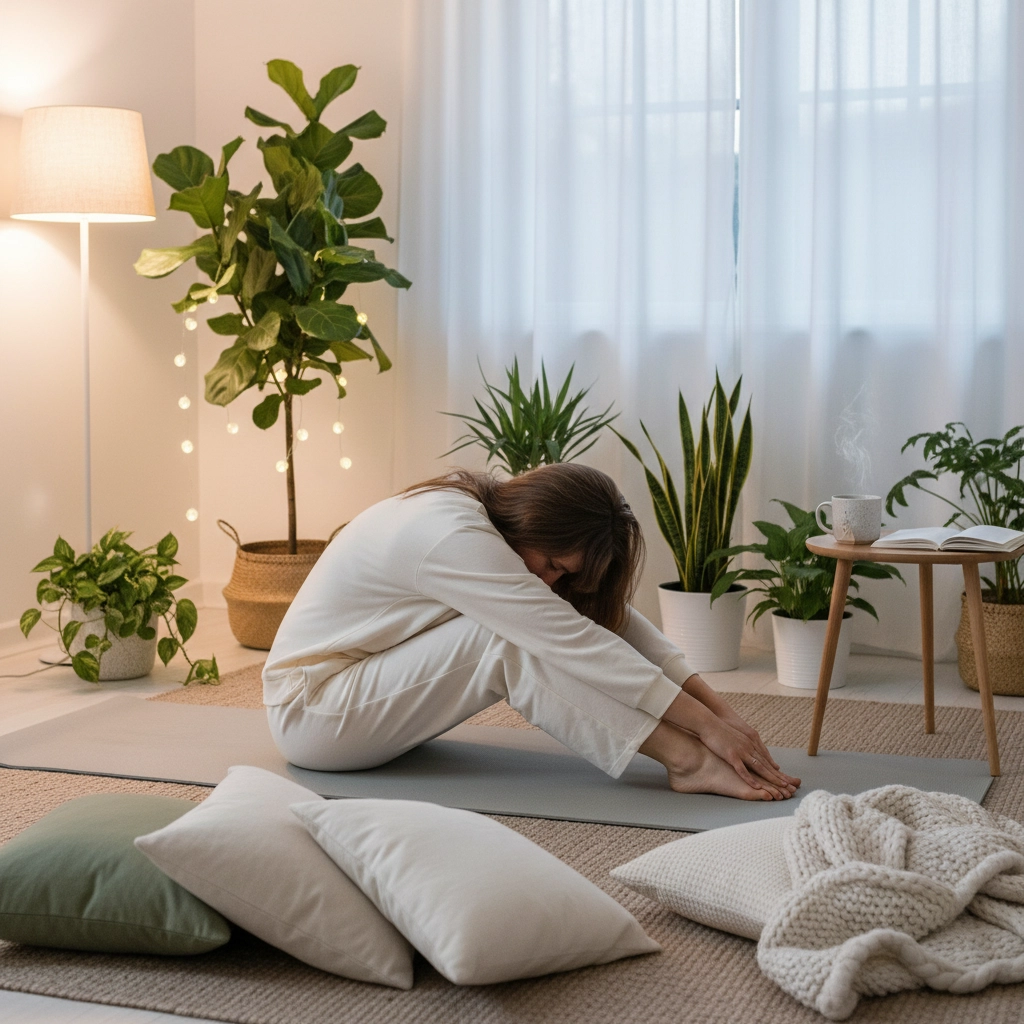
The Science Behind Modern Sleep Support
Today's sleep formulas are far more sophisticated than the single-ingredient options of the past. The best formulations include ingredients like GABA for nervous system calming, 5-HTP to support serotonin production, and adaptogenic herbs that help your body better manage stress: one of the biggest sleep disruptors of our time.
What makes these formulas particularly relevant for 2025 is that they're designed to address the specific sleep challenges of modern life: overstimulation from technology, chronic stress, irregular schedules, and the general difficulty of "switching off" in our always-connected world.
Creating Your Sleep Success Strategy
Fixing these five sleep mistakes doesn't require a complete lifestyle overhaul: small, consistent changes can yield significant results. Start by establishing a "digital sunset" at least one hour before bed, creating a cool, dark sleep environment, and maintaining consistent bedtimes and wake times even on weekends.
For many people, addressing behavioral changes while incorporating targeted sleep support creates the most comprehensive approach to better rest. The key is consistency: your sleep habits and any supplements you choose need time to help reset your natural rhythms.
Moving Forward with Better Sleep
Quality sleep isn't a luxury: it's a fundamental pillar of health that affects everything from immune function to mental clarity to emotional resilience. By identifying and correcting these common mistakes, you're taking a crucial step toward not just better sleep, but better overall health and vitality.
If you've been struggling with these sleep challenges despite your best efforts, consider exploring comprehensive sleep support options. 2nd Springs' Sleep Well formula combines L-Theanine, GABA, 5-HTP, and other research-backed ingredients specifically formulated to support your body's natural sleep processes while you work on optimizing your sleep habits.
Remember, transforming your sleep is a journey, not a destination. Every positive change you make brings you closer to the restorative, energizing sleep your body craves and deserves.


